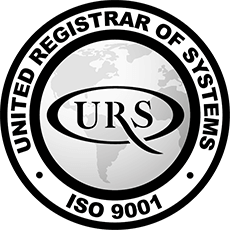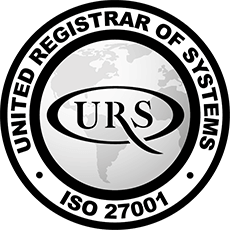Pay per click (PPC) is a paid advertising method used for search engine marketing (SEM). The advertiser creates an advert online and only pays when people interact with the content, either through impressions or clicks. Around 63% of internet users have clicked on a PPC ad, which reveals just how important they are for attracting shoppers. With that in mind, we’ve put this guide together looking at what merchants need to know about PPC.
How does PPC work?
Over seven-million advertisers use PPC to attract new customers, whether it’s people buying an item, subscribing to a service or signing up for a course. When successful, they can increase visits to your website and increase sales.
Most PPC ads appear on search engines like Google and Bing (but mostly Google), though you can also run PPC campaigns on social media channels like Facebook, Twitter and Instagram. On search engines, they’re the results you see at the very top of the page, and they’ve got an “ad” sign next to them so that customers know it’s sponsored content.
Why pay per click can help your store
PPC is a cost-effective concept for driving traffic to your website and finding higher-quality leads. You can set the budget, which means you’ll never go over the amount you're willing to spend. This is ideal if you have a set amount in mind and don’t want to commit too much to PPC.
Social media PPC can also be tailored to your customer personas. That means you can advertise to people between, say, 35-45 years of age if that’s your target demographic. With SEM, however, the audience is broader as it’s search engine related.
Different types of pay per click
Google is the most well-known place on the internet for PPC, but it’s not the only option available. You can use it on other search engines like Bing, plus social media platforms.
Google Ads
People Google; that’s what they do. And if you want them to find your website, they’ll need to Google something relatable to the products and services you sell. Essentially, there are two ways to achieve this: with great content that ranks organically or through PPC. Ideally, a bit both.
Bing ads
Bing ads aren’t as popular as their Google counterparts. Yet, a single Bing ad can still reach 162 million unique searchers. Therefore, it’s still a worthy place to advertise and even has a slightly lower cost-per-click (CPC) than Google, with six billion monthly searches happening with Bing.
Facebook Ads
Facebook ads have continued to grow in popularity, becoming a genuine way for businesses to promote their offering. Its specific targeting options offer you the opportunity to narrow down your target market and acquire higher-quality leads.
How much does PPC cost?
The average cost per click (CPC) on Google is £1.95p, while Bing is around £1.25p. On average, you should expect to pay between one and two pounds every time someone interacts with your PPC advert.
The cost of the ad depends on the keywords you’re bidding for, with some more expensive than others. You can use tools like Google Ads to determine the cost of a PPC advert, and the price will always be displayed before you commit. When bidding for a keyword, you set the amount you’re willing to pay. That means you have control over the amount you pay and can stay within the budget set.
How to get started
When starting a PPC ad, there are a few factors worth noting. You’ll want to set parameters, so it’s got the best chance of reaching the right people. Think about who you want to target, the theme of your campaign, how you’ll measure success and the type of campaign you’re planning on running.
Within the dashboard of your chosen method for PPC (Google, Bing, Facebook, etc.), you can create goals and metrics. This will help you keep track of your campaigns and let you tweak aspects along the way should you need to. Finally, choose the campaign delivery method: eg, search ads or display ads.
Search ads
The most common type of PPC, search ads, refer to the text you see in search engine results on Google and Bing. Going down this route means you’re competing for space at the top of the page and want to give your store more visibility for your chosen keyword.
Display ads
Using a display ad allows you to implement an image on websites across social media. For example, you can pay to show up in your target audience’s social feed on social media platforms like Facebook and Instagram.
Click, click, buy
Using PPC can be a helpful way of turbocharging your store’s visibility. You have control over the ads, which means you’ll be able to see how they perform in real-time and change accordingly. When done right, PPC ensures that your business gets in front of the right audience, giving you more reach and the opportunity to boost sales.







